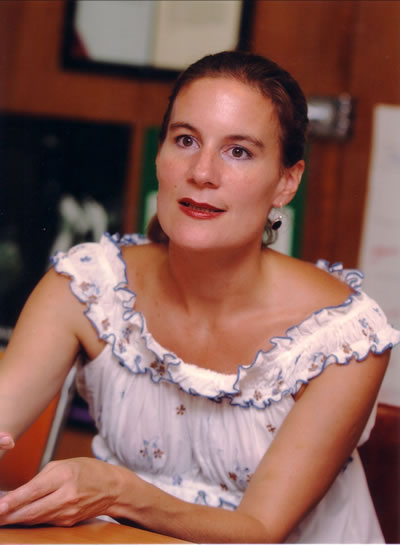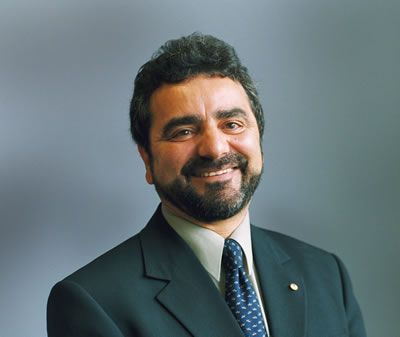Keynote speakers
ACAL is pleased to announce the keynote speakers at "Hands up... Hands on..." will be
- HE. Kirsty Sword Gusmão, Chairwoman of the Alola Foundation and Goodwill Ambassador for Education, Timor- Leste
- Professor Joe Lo Bianco, Chair of Language and Literacy Education and Associate Dean (Global Engagement). The University of Melbourne
- Bill Atweh, Associate Professor of Mathematics Education at the Science and Mathematics Education Centre at Curtin University of Technology
HE. Kirsty Sword Gusmão, Chairwoman of the Alola Foundation and Goodwill Ambassador for Education, Timor- Leste
 Ms Sword (Gusmão) was born in Melbourne, Australia, in 1966. She grew up in Melbourne and Bendigo and attended Melbourne University where she completed a Bachelor of Arts (Honours), majoring in Indonesian and Italian, and a Diploma of Education.
Ms Sword (Gusmão) was born in Melbourne, Australia, in 1966. She grew up in Melbourne and Bendigo and attended Melbourne University where she completed a Bachelor of Arts (Honours), majoring in Indonesian and Italian, and a Diploma of Education.
In 1991, after working as an Administrative Secretary with the Overseas Service Bureau (Australian Volunteers International), she joined the Refugee Studies Program at Oxford University as Assistant to the Development Coordinator. During 1991, she travelled to East Timor as the Researcher/Interpreter the Yorkshire Television documentary film (In Cold Blood: The massacre of East Timor) on political and social developments in the territory.
From 1992 to 1996, she lived and worked as a teacher and human rights campaigner in Jakarta, Indonesia. It was during these years that her work for the East Timorese independence cause intensified and brought her into contact with the independence leader, Xanana Gusmão, who was serving a 20-year sentence in a Jakarta jail and whom she married in July, 2000.
She has lived in East Timor since October 1999 and is the founder and chairwoman of the Alola Foundation which she established in 2001 to address the needs of East Timorese women and their families.
Alola’s Programs have expanded rapidly since then and have been in great demand since the crisis began in East Timor in April 2006.
- The Education Program has been able to provide scholarships for young people of needy families, encouraging their continuance of schooling. The Friendships Schools Project links primary and secondary schools in Australia with schools in East Timor.
- The Maternal and Child Health program works to help contribute to a reduction in the maternal and child mortality rates by promoting good health for women and their communities. Throughout the crisis the MCH team has been very active giving help to new mothers through the distribution of Maternity Packs at Dili and Baucau hospitals, and through breast feeding promotion and education activities.
- The Women’s Resource Centre staff provide resources, information and referral services to women and their families, particularly in the areas of domestic violence, maternal and child health and accessing humanitarian assistance.
- The Economic Empowerment program has been fostering the handcrafts industry and international marketing of traditional tais (weaving) and tais products.
Kirsty was appointed by the President Dr. Jose Ramos Horta as Goodwill Ambassador for Education in October 2007. This appointment was in recognition of Kirsty’s tireless efforts to date and to formalize future endeavours in addressing the educational priorities of Timor-Leste.
She is Co–Chairperson of the National Education Commission and represents UNESCO, Timor-Leste at international forums.
Kirsty has three sons, Alexandre (8 years), Kay Olok (6 years) and Daniel (4 years). Kirsty is very active in her local community of Balibar, on the outskirts of Dili district, assisting the local pre-school and primary school and conducting vocational training of local women.
Information about the work of the Alola Foundation at www.alolafoundation.org
Professor Joe Lo Bianco, Chair of Language and Literacy Education and Associate Dean (Global Engagement), The University of Melbourne
 Professor Lo Bianco is the Associate Dean (Global Engagement) at Melbourne Graduate School of Education in the University of Melbourne and President of the Australian Academy of the Humanities.
Professor Lo Bianco is the Associate Dean (Global Engagement) at Melbourne Graduate School of Education in the University of Melbourne and President of the Australian Academy of the Humanities.
He is well known as the author of the National Policy on Languages, the 1987 policy adopted by the Australian government as a comprehensive national plan covering all of Australia's language needs and interests: English and English literacy; English as a second and as a foreign language; languages other than English including Indigenous language rights, immigrant and foreign languages; and language services such as research, translating and interpreting, and public media.
Joe has more than 32 books and major reports and 120 chapters and articles. His most recent books include: China and English: Globalisation and Dilemmas of Identity (2009), Second Languages and Australian Schooling (2009). He has worked as a language advisor in a large number of countries, including Sri Lanka (on bilingual education and language rights), Scotland (on national language policy, including adult literacy), Ireland (helping to produce a 20 year strategy for revival of Irish, adopted in 2009 by the government of Ireland), Thailand (on a national language plan) and other settings.
His PhD research was on national language debates in the United States on Official English. His areas of research interest include language rights, language planning, literacy and basic education rights for adults, bilingualism, Global English and especially English in Asia, Sri Lankan education and the sociology of English; Italian, Asian studies, multiculturalism, minority language maintenance and intercultural perspectives in language education.
'Getting Serious about Adult Literacy in Australia'
What are the lessons from the long and tortuous road to establish an enduring, properly funded and serious adult literacy national policy and strategy in Australia? What features should such a policy and strategy have at a time or rapid and deep globalisation with its attendant changes in communication technologies, population mobility and multilingualism? In this talk I will reflect on the fortunes of adult literacy education in public policy by addressing its connection to international agencies like UNESCO and the OECD, to data and research, lobbying and bottom-up advocacy, and to the dramatic changes in education and the economy that make the case for a coherent, systematic and careful policy on adult literacy an urgent national necessity.
 Bill Atweh, Associate Professor of Mathematics Education at the Science and Mathematics Education Centre at Curtin University of Technology.
Bill Atweh, Associate Professor of Mathematics Education at the Science and Mathematics Education Centre at Curtin University of Technology.
Bill's research interests include sociocultural aspects of mathematics education and globalisation, the use of action research for capacity building and critical and socially-responsible mathematics education. His publications include editing several books: Action research in practice: Partnerships for social justice in education ( Routledge); Research and supervision in mathematics and science education (Erlbaum); Sociocultural research on mathematics education: An international perspective (Erlbaum); Ripples of change: A journey in preservice teacher education reform in the Philippines (CHED); Internationalisation and globalisation in mathematics and science education (Springer) and a forthcoming book Mapping Equity and Quality in Mathematics Education (Springer). His overseas projects have taken him to Colombia, Mexico and Argentina in Latin America, Vietnam, Philippines, and Indonesia in Asia in addition to several destinations in North America and Europe. More recently he chaired a plenary panel discussion on Quality Mathematics Education for All at the 2008 International Congress of Mathematics Education in Mexico.
Bill will speak on
'Ethical Foundations of Critical Mathematics Education: A Socially Response-able Approach'
I will commence this talk by noting that the current policies, curricula and practices in numeracy and mathematics education are often based on an unexamined belief of their importance for the individual and society in general. I will argue for the need to re-examine the role of numeracy and mathematics education in our new times based on two phenomena. First, technological developments have lead to contradictory construction for the role of numeracy in society. While the wide spread use of technology for decision-making points to the increase in mathematization of social life, at the same time it has rendered much of the traditional numeracy and mathematics invisible. Secondly, our new times are noted by complexity, uncertainly and risk-taking that rendered traditional constructions of practice as inadequate to provide normative guidelines for educators. In order to deal with tensions faced by teachers of numeracy and mathematics, I will propose a reconstruction of critical mathematics education on ethical grounds and demonstrate how it may provide us with means to develop a self reflective practice in developing numeracy and mathematics for today’s learners.





